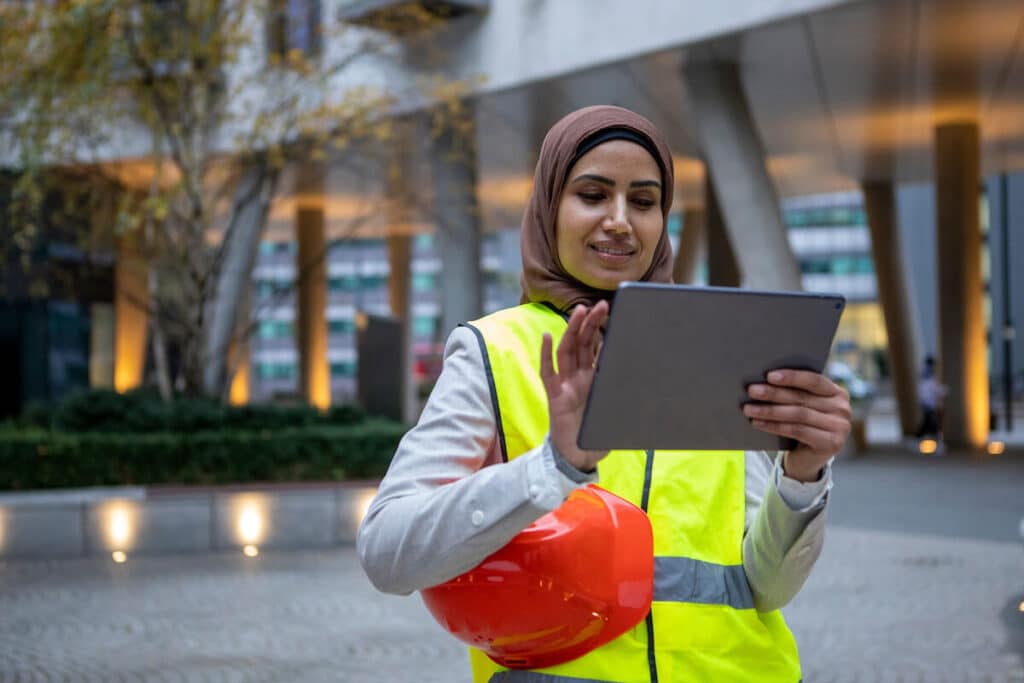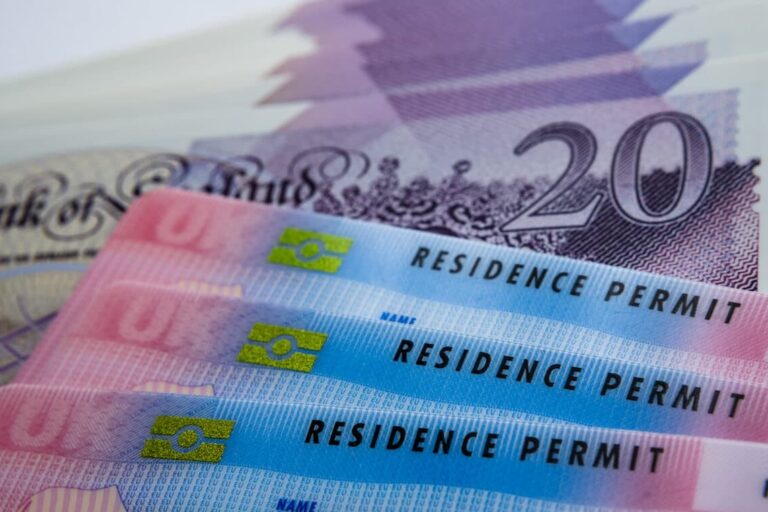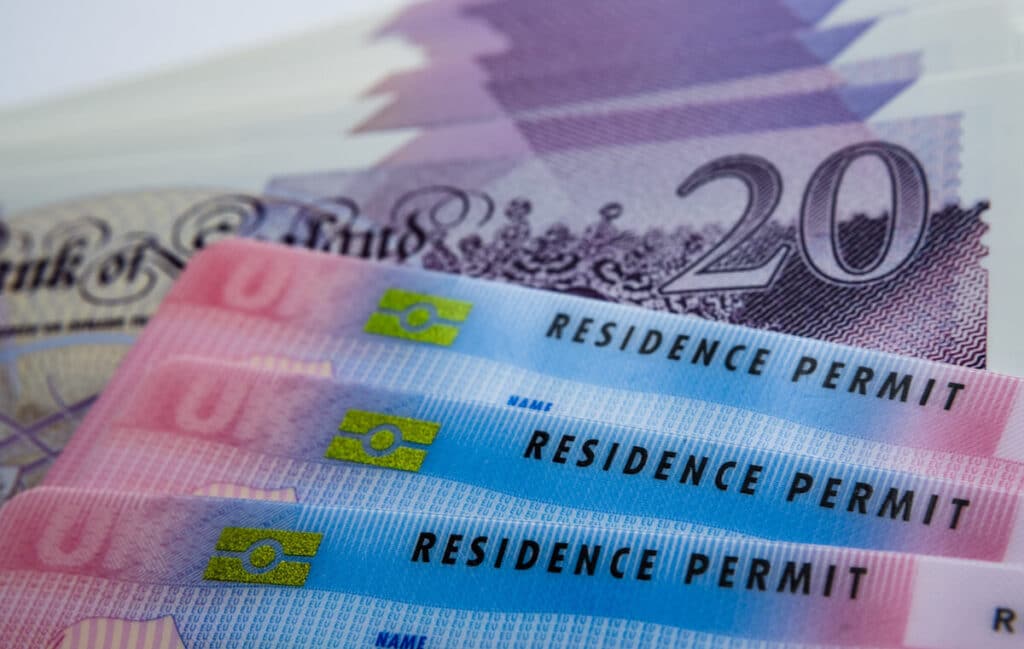At Remitly, we know that many people move to the UK to work there and support family back home. There are several pathways to getting a work visa in the United Kingdom. Long-term work visas, short-term work visas, and self-employment-based visas all have different eligibility criteria.
Once you have a work visa, you can stay in the UK for anywhere from six months to five years, depending on the type of visa you’ve applied for.
Here’s what you need to know about how to get a work visa in the UK and how to prepare for your UK visa application.
Do you need a visa to work in the U.K.?
Most overseas citizens require a visa to work for a UK employer ever since Brexit (the withdrawal of the United Kingdom from the European Union), this includes European Union (EU) citizens.
You may qualify for an exception to the UK work visa policy if:
- At least one of your grandparents was born in the UK, you may be eligible for an Ancestry visa, which includes the right to work.
- You’re an Irish citizen; you may live and work in the UK under the Common Travel Area (CTA) agreement.
- You’re a Commonwealth citizen of a British Overseas Territory or have the right of abode in the UK; you don’t need a work permit or visa.
- You’re a citizen of the European Economic Area (EEA) or Switzerland and have indefinite leave to remain, you don’t need an additional work visa.
Keep in mind that the right to work in the UK and the right to enter the UK are two different things.
Citizens of countries like the U.S., New Zealand, Canada, and Australia can stay in the UK for up to six months as visitors. They can even attend business meetings or interviews but can’t receive paid employment.
Student visa holders in the UK typically have work rights but with restrictions on the type of work and the number of hours.
How to get a UK work visa
The application process for a UK visa depends on where you’re located and which visa you’re applying for. Individuals can apply online for most UK work visa programs, but you may need to visit a visa application centre near you for a biometrics appointment.
You’ll need to gather documents such as:
- Valid passport or other ID document
- Proof of personal savings, such as a statement showing the balance of your bank account, to show that you meet financial requirements and can support yourself in the UK
- Proof of English-language proficiency
- Results of a tuberculosis test
- Certificate of sponsorship from an employer proving that you have an eligible job
Not all of these documents are required for every visa, and residents of some countries may use the UK Immigration: ID Check app to prove their identity. Eligibility requirements for different visa types are subject to change, so contact the nearest UK embassy or consulate before beginning the application requirements.
You’ll also need to pay visa fees, including an application fee and an annual immigration health surcharge. Visa fees range from £247 for a Health and Care Worker to £1,423 for some Skilled Worker applications.
How long does it take to get a work visa in the UK?
Once you have successfully completed the application form for yourself and any additional applications for your family members, it will typically take 3 to 8 weeks for the government to process them.
You need to submit the required documents, like your certificate of sponsorship or passport, to ensure the application process is completed on time.
Double-checking that you’ve included all of the documents listed in the eligibility requirements section of the UK work visa program that you’re applying for can ensure that your application gets processed as quickly as possible.
For most visa programs, you can apply up to three months in advance. However, rules for how soon you can apply for certain visas may establish shorter or longer time frames. As a result, anyone hoping to switch jobs to a UK branch, obtain new employment in an eligible occupation, or start a business should read the specific rules for the program before starting their visa applications.

Types of work visas in the U.K.
There are three main visa categories: short-term, long-term, and entrepreneur/business visas.
| Visa | Description |
|---|---|
| Short-term work visa | Allows you to live and work in the UK temporarily. |
| Long-term work visa | Allows you to stay in the UK for up to five years and may offer a pathway to permanent residency. |
| Entrepreneur and self-employed visas | The UK immigration system doesn’t have a work visa for freelancers, but some self-employed workers may be eligible for the Innovator Founder visa or the Global Talent visa. |
Short-term work visas
Short-term visas are UK work visas that allow you to live and work in the UK temporarily.
Several types are available, including the Youth Mobility Scheme visa, the Graduate visa, the Charity Worker visa, the Seasonal Worker visa, the Creative Worker visa, the Government Authorized Exchange visa, the Religion visa, and the International Agreement worker visa. Let’s take a look at each one.
Youth Mobility Scheme visa
The Youth Mobility Scheme UK work visa is available to young people from specific countries, such as Canada, Australia, Japan, and South Korea, and you must be between the ages of 18 and 30 when you apply. The temporary visa granted through the Youth Mobility Scheme allows you to stay in the UK for up to two years, and you don’t need a job offer before you arrive.
Graduate visa
The Graduate Trainee visa is available to applicants who have completed a course of study in the UK, such as a bachelor’s degree or graduate degree. Through the graduate route, you can live and work in the UK for up to two years (three if you have a Ph.D. or doctorate).
Charity Worker visa
The Charity Worker visa allows you to stay up to 12 months and volunteer for a licensed sponsor; however, you can’t perform any paid work on this visa.
Seasonal Worker visa
The Seasonal Worker visa allows you to work for up to six months in the horticultural industry if you have a certificate of sponsorship from a UK employer.
Creative Worker visa
Formerly known as the Creative and Sporting visa, the Creative Worker visa lets you work as a creative professional, such as an actor or musician, for up to 12 months. You can also take a second job in the same industry or a Skilled Worker shortage occupation.
Government Authorized Exchange visa
This UK work visa is available to individuals participating in an approved government-authorized exchange scheme, such as a research fellowship, a language program, or a training course. To utilize this UK visa route, an organization or business must sponsor you.
Depending on the length of your exchange program, this UK work visa will allow you to live and work in the UK for 12 to 24 months. In addition to the first job listed on your UK work visa documentation, the immigration status allows you to work at a second part-time job for up to 20 hours per week.
Religion visa
Also known as the Religious worker visa, the Religion visa is available for people coming to the UK to work for a religious order or in a non-pastoral role for a religious organization. The place of worship, religious organization, or order must sponsor your UK work visa application. This visa allows temporary workers to remain in the UK for up to 24 months.
Ministers of recognized faith communities and missionaries can apply for long-term UK work visas through the Minister of Religion visa program.
International Agreement visa
The final category of temporary UK visas for workers is the International Agreement worker visa, which is available to people sponsored by an overseas government, a recognized international organization, or a diplomatic household hiring a private servant. This UK work visa is usually good for up to 2 years.

Long-term work visas
Long-term work visas allow you to stay in the UK for a longer period, usually up to five years and may offer a pathway to permanent residency. These visas also allow you to include your partner and children on the application.
There are a few main types, including the Skilled Worker visa, the Health and Care worker visa, the Senior or Specialist worker visa, the International Sportsperson visa, and the Domestic Worker visa. Read on to learn about each one.
Skilled Worker visa
The Skilled Worker visa is open to skilled workers in specific eligible occupations, such as graphic designers, fitness instructors, laboratory technicians, and dozens more. The skilled worker route uses a points-based system to determine your eligibility. You can learn more about this points-based assessment here.
To qualify for a UK skilled worker visa, you’ll need a job offer from a UK overseas employer approved by the Home Office, know English, and receive a minimum salary. You will also need to pay a healthcare surcharge.
Health and Care Worker visa
The Health and Care Worker visa is primarily for medical professionals who want to work for the National Health Service (NHS). For this visa, you won’t need to pay the healthcare surcharge attached to the Skilled Worker visa. As with the skilled worker visa, you’ll need a confirmed job offer before applying.
Senior or Specialist Worker visa
Formerly known as the Intra-Company Transfer Visa, the Senior or Specialist Worker visa is for people who already work for a licensed employer with a location in the UK and are moving to the country to work in the same job as their current one overseas.
When applying for a certificate of sponsorship for the visa program, the sponsoring employer must prove that the visa applicant is a senior worker or a specialist with unique skills, experience, or knowledge that makes it necessary for the company to transfer them rather than hiring someone new in the UK.
International Sportsperson visa
The International Sportsperson UK work visa program is for elite athletes and coaches who are internationally established. An athlete must relocate to participate in the sport at the highest level, such as for a professional team, and a qualified coach must obtain a job offer before applying.
Domestic Worker visa
Also known as the Private Household visa, the Domestic Worker visa is available to cleaners, chauffeurs, cooks, nannies, and personal carers whose employers are moving to the UK on a short-term or long-term UK work visa.
To qualify for the Domestic Worker visa, applicants must have worked in the private household of their employers for at least one year.
Entrepreneur and self-employed visas
The UK immigration system doesn’t have a work visa for freelancers, but some self-employed workers may be eligible for the Innovator Founder visa or the Global Talent visa.
Innovator Founder visa
The Innovator Founder visa program is a newer type of UK work visa program that replaced UK work visas like the Entrepreneur and Investment visas.
Sometimes called the UK start-up visa, this UK work visa is for entrepreneurs with a unique business idea that they want to get off the ground in the UK. The start-up visa is reserved only for those launching a completely novel new company and have had their idea endorsed by an approved body.
Global Talent visa
The Global Talent visa program is for individuals who are current leaders or promising future leaders in academia, research, arts, culture, or digital technology. Individuals who have won prestigious prizes related to architecture, arts and culture, digital technology, fashion design, film and television, science, engineering, humanities, social science, or medicine are also welcome to apply.


